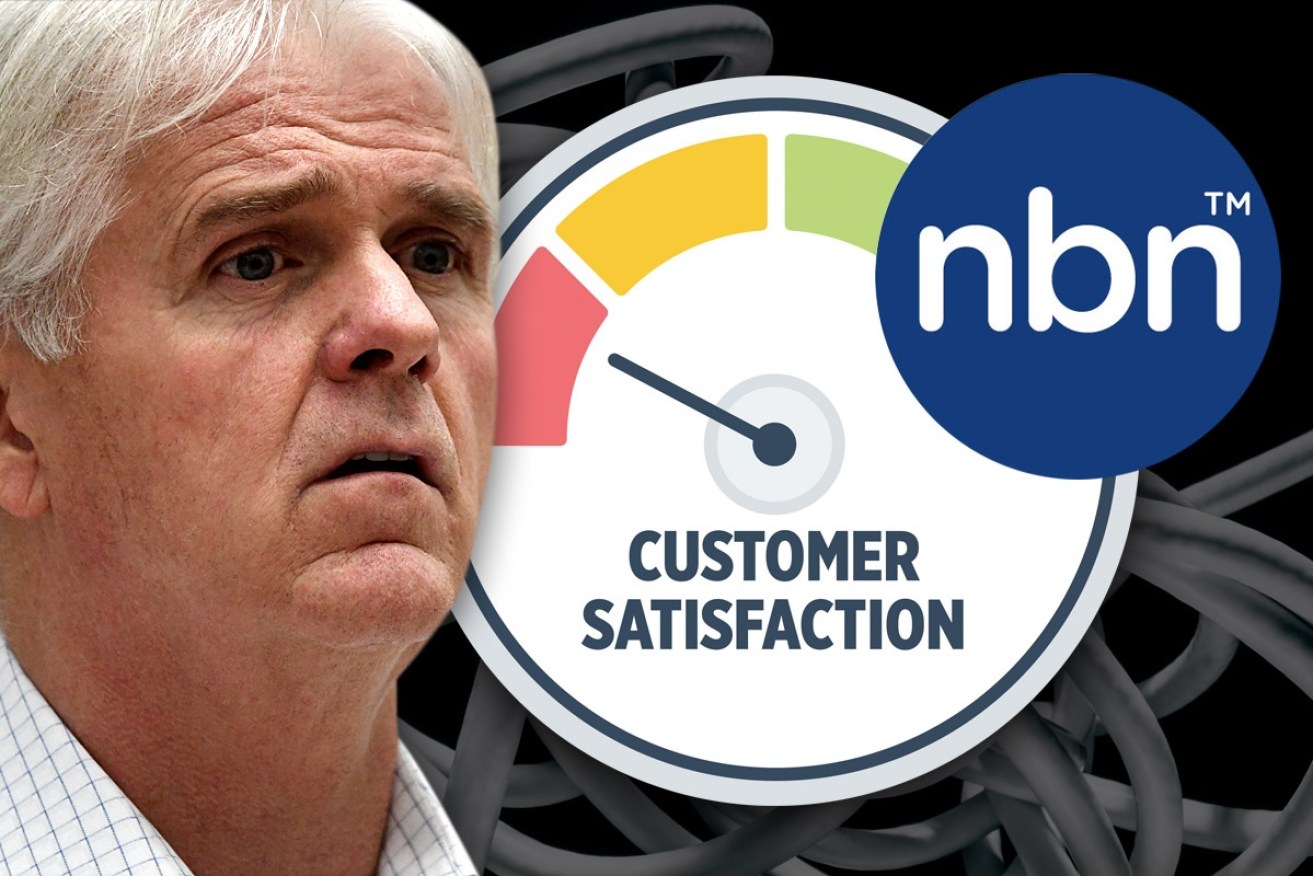The NBN debacle just keeps on getting worse


Slow speeds and poor performance are seeing consumer complaints over the NBN soaring.
A political storm is brewing as the NBN fails to connect with Australians.
Slow speeds and poor performance are causing consumer complaints to soar while leading to others choosing not to sign up to what voters have been told is nation-building and transformative broadband technology.
The rising dissatisfaction could lead to the NBN becoming a major issue at the next federal election if Communications Minister Mitch Fifield, and Prime Minister Malcolm Turnbull are unable to address it.
A very worried Senator Fifield has even gone as far as asking the Australian Communications and Media Authority to institute a consumer complaints investigation.
So far more than 5.7 million premises technically have access to NBN across fixed line, fixed wireless and satellite, which is half the country.
But only an estimated half of all properties have made the transition, while complaints from new NBN customers about connections and download and upload speeds have been escalating.
Some consumers, aware of the poor performance, are not bothering to sign up, which will leave the NBN’s business plan with a financial black hole.
And a coercive 18-month deadline to connect to the NBN before losing existing phone and internet services is a recipe for resentment.
NBN ‘is not to blame’
“This is competition at its worst,” says NBN Co chief executive officer Bill Morrow.
As part of an as-yet unconvincing PR campaign to deal with increasingly enraged consumers, Mr Morrow appears to be pleading for understanding.
In media interviews and on the NBN Co’s website video, Mr Morrow cut to the chase. The NBN was not to blame, he claimed, saying the retail industry’s rampant price war was the real culprit.
Each week as the NBN’s connections are made accessible, competing service providers are rushing in to sign up customers with discount price incentives. “This classic ‘land grab’ phenomenon can create more downside than upside if not carefully managed,” Mr Morrow said.
The NBN Co has acknowledged that 35 per cent of the public is not aware that they have the option of picking a speed level when buying a retailer’s product.
On some budget monthly plans, customers found they encountered slower speeds with dropouts or endless buffering, particularly during the daily peak from 4pm to 9.30-10pm on weekdays.
Bugger. Just when you want to browse the internet or stream a video.
Mr Morrow will have his work cut out for him reversing the negative perception.
“Some have argued the solution to this is with NBN reducing the price we charge the retailers. We have tried to strike a balance between costs, quality and our need to make a return on the government’s $49 billion investment,” he said.
But it was up to the nation’s phone and internet companies to decide how much of the bandwidth purchased wholesale from NBN was actually allocated to their end users.
The chief executive of consumer advocate Internet Australia, Laurie Patton, argues that the Turnbull government’s multi-technology mix – which relies largely on fibre to the node and existing old copper telephone lines – is fundamental to Australia’s broadband implementation failure.
He also blamed NBN’s pricing mechanism, “which effectively penalises the retailers through lower profit margins if they sell high speed packages”.
By the end of the year the ACMA, with input from the Australian Competition and Consumer Commission, will have audited complaints concerning 21 selected retail service providers (of the guesstimated 180 now vying for market share) and covering 1800 residential users and 700 enterprises.
So fraught is the debate about the NBN’s performance that the problem will become a major federal election issue if Senator Fifield and Mr Turnbull do not fix it.
The Labor Party, under Opposition Leader Bill Shorten, has been understandably bagging the government over the NBN but has yet to reveal its updated NBN policy.
With the federal budget in deficit distress, any move to resume fibre-to-the-premises rollout or the less expensive alternative fibre-to-the-curb to connect the rest of Australia would have to be costed.
Given the government has already extended a $19 billion line of credit to NBN Co to complete the current rollout by 2020, where is the extra money coming from to fix Australia’s NBN?
And at what cost to the Coalition?
Quentin Dempster is a Walkley Award-winning journalist, author and broadcaster with decades of experience. He is a veteran of the ABC newsroom and has worked with a number of print titles including the Sydney Morning Herald. He was awarded an Order of Australia in 1992 for services to journalism.








